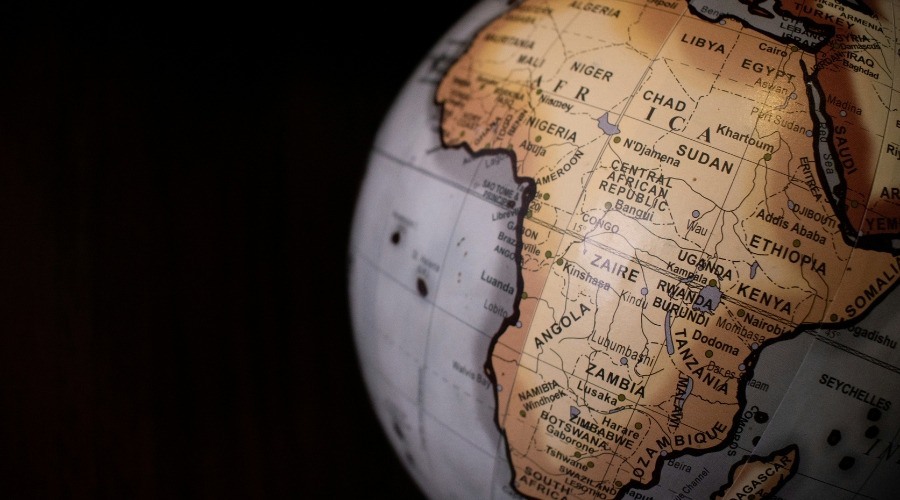Africa's Digital Crossroads: Payments & Technological Change
An emerging payments revolution in Africa, driven by mobile payments and fintech。

History tells us that technological strength determines the rise and fall of superpowers.。Countries that can effectively spread the benefits of cutting-edge technology have exploded and left their mark on history.。An emerging payments revolution in Africa, driven by mobile payments and fintech。
Chinese capital entry
China's technological prowess, intertwined with Africa's development aspirations, is reshaping the continent in all areas。
Telecommunications infrastructure is a fundamental part of digital connectivity and has been significantly improved through initiatives such as the PEACE submarine cable project。Driven by China's Digital Silk Road initiative, the ambitious project promises to revolutionize Africa's digital landscape by providing rapid, economic connectivity across the continent.。
From e-commerce ecosystems to logistics infrastructure, China's influence is unquestionable。Africa is leveraging mobile payments and learning from the successes and best practices of platforms such as Alibaba。Notably, partnerships between Chinese fintech giants and African financial institutions are promoting financial inclusion and empowering homegrown fintech solutions.。
More importantly, the relationship between Chinese telecommunications companies and Africa's strategic development is deep-rooted and multifaceted.。The report highlights how Chinese suppliers are taking advantage of opportunities in developing countries, leveraging their price advantage and long-term approach to building relationships.。This strategic positioning allows Chinese companies to secure core network contracts, paving the way for subsequent upgrades and expansions.。
Mobile payment market opening
In terms of payment infrastructure in Africa, telecom giants are undoubtedly major players in financial services。These telecoms companies, including France's Orange, South Africa's MTN, the UK's Vodafone and Airtel Africa, use their mobile payment networks to provide basic banking services to millions of users on the continent.。
COVID-19 pandemic highlights importance of mobile payment services, leading to surge in transactions and active users。It has effectively accelerated the mainstreaming of mobile payments into financial services in many countries, especially in low- and middle-income countries.。However, mobile payment operators still have to face revenue challenges due to government pressure to reduce transaction fees to mitigate the impact of the blockade on the economy.。
But even as the impact of the pandemic wanes, mobile payment services continue to grow rapidly in 2022, surpassing pre-COVID levels, an achievement that has spurred a flurry of activity, with African banks rolling out mobile accounts and telecoms companies exploring initial public offerings in their mobile payments units to boost strategic partnerships and expansion opportunities.。
The State of the Mobile Payments Industry Report 2023 takes an in-depth look at the post-epidemic growth trajectory, highlighting the evolution of mobile payment providers, broker networks and the millions of customers who will accept mobile payments in 2022.。
Visa vs Mastercard
As the battle for Africa's payments market intensifies, Visa and Mastercard seem to be engaged in a fierce competition。With the continent's rapid shift to digital trading and the proliferation of fintech start-ups, both companies are aggressively expanding their reach and investing to capture a significant share of this emerging market.。
Competition intensified after Visa launched the African Fintech Accelerator program in 2023 and the Mastercard Foundation quickly announced the creation of a fund aimed at funding early-stage companies through local investment channels.。
Mastercard buys MTN 3, Africa's largest telecoms company, for $200m.8% of the shares, causing a shock in the industry。This bold investment follows a similar acquisition by Mastercard for Airtel Africa's mobile payments business, which demonstrates Mastercard's commitment to gaining a foothold in mobile financial services in Africa.。
Not to be outdone, Visa quickly invested in a number of African fintech start-ups and integrated its global virtual card network with the M-Pesa platform, Kenya's leading force in mobile payments, demonstrating its determination to harness Africa's digital revolution.。
Conclusion
As the battle for dominance in Africa's payments industry intensifies, the impact of technological advances and strategic investments is becoming increasingly evident.。
While China's involvement represents a huge opportunity for digital economic growth in Africa, potential pitfalls remain worrisome, such as over-reliance on external infrastructure and the risk of hollowing out local manufacturing.。To take full advantage of the benefits of the digital revolution, Africa must not only embrace technological progress, but also build strong industrial capacity to ensure sustainable economic development.。
The addition of global players such as Visa and Mastercard has also added a new dimension to the competition, as these companies have aggressively expanded their presence in Africa, leveraging their expertise and resources to capture a significant market share.。
For African consumers and businesses, this competition means greater access to innovative financial products and services。With the popularity of mobile payments and digital transactions, the continent's financial inclusion and economic development will achieve unprecedented growth。
However, only by simultaneously experiencing multiple waves of industrial revolutions and promoting homegrown innovation can Africa embark on a path of economic prosperity that is self-reliant and resilient.。
Disclaimer: The views in this article are from the original Creator and do not represent the views or position of Hawk Insight. The content of the article is for reference, communication and learning only, and does not constitute investment advice. If it involves copyright issues, please contact us for deletion.